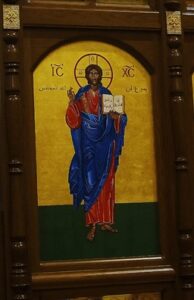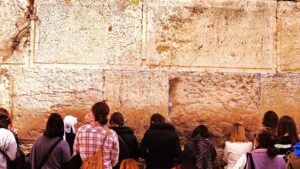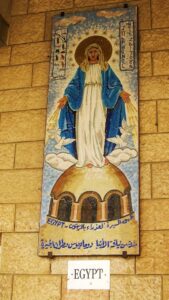
Love
Pastor Rachel B. Livingston

By now, I probably don’t need to remind you that we are in the specific season of advent as we enter into the 4th week of this season. Advent symbolizes this time of expectant waiting as we wait for Christ, waiting as we follow our Christmas story, waiting for Christ to reveal himself in the present, and waiting for Christ’s return as we enter into final glory. Our scripture this morning lands in a place that precedes the scripture we referenced last week. It is the beginning of Mary’s story. Last week, we entered in at the tail end of the story, at the point of Mary’s rejoice, at the point of her praise. But now we stand at the beginning, as God comes and approaches Mary through the presence of an angel, Gabriel.
Mary was there, an innocent girl, young vulnerable, about the age of 13, a woman of no specific status or title. She had a modest beginning, she wasn’t wealthy, she wasn’t a religious leader, she was just a simple girl, who some would pass by without a thought, a simple woman who was in an oppressed class because of her gender and because of her heritage, because of the skin she was in, because of her religion, because she was a Jew, because she put her faith in the one true God and followed a monotheistic faith. By societal standards she was just a plain anybody and by some standards she may have been a nobody. Yes, now we bring value to the name of Mary, the one who we know now to be the mother of Jesus Christ, the son of God. But Mary was just a poor girl from an oppressed class, that many would not stop to take a second glance at. And yet, in her, God found favor – the angel of the Lord greeted her and said, “Greetings, favored one! The Lord is with you!” She was just a young and innocent, oppressed, poor girl, and yet God was with HER! Not someone of royalty, but her. Remember, as we spoke last week, it is in her that the lowly are lifted up. She was a simple girl and yet she was chosen as the one to be in partnership with God that she might birth God’s salvation for the world.
Joy

Pastor Rachel B. Livingston
I. Beginnings
We have entered into our third week of advent, the season of expectant waiting, where we are waiting through the Christmas season as we follow the story of the birth of our Lord and savior Jesus Christ, we are waiting for Christ to reveal himself among us in the present, and we are waiting for the return of Jesus Christ that will take us into the future age as we meet God in the Kingdom of heaven. But as we wait in this Advent season, we are aware that the world around us is celebrating the Christmas season. Lights, nativity scenes, Santa Clause, trees, Christmas carols, presents, gift wrap, shopping, online shopping carts and in person shopping bags, Christmas tree ornaments, stars upon the tree, angels to top the tree, all unique markers for this season as we prepare for Christmas morning that arrives on December 25th. We scramble around buying gifts for one another, trying to make sure that the Christmas season is the most incredible time for us and our loved ones. We are caught up in the picture-perfect stories of Christmas fairytales and love on the Hallmark and Lifetime channels. We lose ourselves in the Christmas spirit with thoughts of joy, love, hope, promise, Christmas magic, and Christmas cheer. We want to have ourselves a Merry little Christmas because of course this is the most wonderful time of the year. It is a joyous time, a joyous occasion for most of us.
Peace

Pastor Rachel Livingston
I. Beginning
Peace – Peace I bring to you in the name of Jesus Christ! For Jesus is the messiah, the one who brings salvation, the Son of God. The one who brings peace in the midst of chaos, the one who is peace himself. Last week we entered into this season of Advent, this season of expectant waiting, this season of waiting for the celebration of the birth of that Christ-child, the season of waiting for the movement of Christ to be revealed within this season, this season of waiting for the return of our King, Jesus Christ, this season that brings the joy and the hope of waiting, but also the pain and discomfort of waiting. We have the opportunity to grow in this time as we wait in this moment, this moment of the dark, black, richness of night, waiting in the darkness as the stars become a companion of guidance to Jesus, waiting in the darkness as angelic beings guide with the comforting words that say do not be afraid, waiting for the revelation of the King, Jesus Christ, who reveals himself in the vulnerability of a child in a stable, laid in a manger. But yet we are also waiting in the dark richness of the night, the blackness of our life, but it is not a darkness of depression, but a darkness of feeling the present of now and the calming presence of resting, the darkness that covers us with an internal hope of listening and watching as we wait, and the darkness that is a companion as we wait for the joy of a morning sun that is yet to come with great possibilities and redemption. In this moment of waiting, this season of Advent, if we have learned anything from the Christmas story we see that the rich, blackness of the dark of the night can be a moment of vulnerability that connects us to God, it can be a moment of guidance to the light, and it can be a moment of peace. We stand in this moment, this moment of the darkness, this moment of waiting, opening up ourselves in vulnerability and resting in God’s peace, watching and waiting for the transformational presence that is Jesus Christ, revealing himself to us in the world.
As we started this season of waiting, last week, we saw that Jesus Christ is our hope, our active, living hope that has brought such transformation in the biblical tradition, in our lives today, and brings hope to our future that has yet to be. But this morning, this miraculous morning, we acknowledge that Christ is, not only our hope, but our peace. What indeed a unique and significant statement that is, that Jesus Christ is our peace! Jesus is our PEACE in the midst of sorrow! Which doesn’t means that Jesus will take away the sorrow we have, for sorrow is a natural human reaction, but Jesus is the comforting presence that gives us peace, the one who doesn’t prevent the tears from falling but brings renewal and cleansing waters that can reinvigorate the soul. In the midst of a heavy heart, Jesus grants peace that claims he knows our burdens and our pain, that when we cry, he cries along with us. Jesus is the PEACE in the midst of a storm! For it is Jesus who can calm the roaring of the waves, who can calm the torrential winds that beat upon us, it is Jesus who can look in the face of the storm and say, “Peace, Be Still.” But it is also Jesus who can bring a sense of peace, a sense of comfort, even when all that surrounds seems to beat upon us, we can go to God and know that PEACE is in God’s presence. Even in a chaotic world, where gun violence is rampant within certain cities of this country, where brother and sister are torn against one another, where people are distrustful of one another, where people are worried about what the future holds, where people experience the destruction of people and homes – Jesus Christ is the peace that can grant redemption and salvation from this chaos – the name above other names whose ministry and work seeks to bring peace in the midst of all things. Jesus is the salvation that literally brings peace to the world.
Jesus Christ Is Lord
Pastor Rachel B. Livingston
I. Beginnings
All Hail the Power of Jesus name, let angels prostrate fall, because Jesus Christ is Lord of all. Because of Christ’s majesty, let us all proclaim that Jesus Christ is Lord, that Jesus is sovereign over all the earth. Make a joyful noise to the Lord, all the earth, that means you, and you, and you, and me too, let us all worship the Lord. Worship the Lord with gladness; come into God’s presence with singing. Let us worship our Lord Jesus Christ, who offered himself up as a living sacrifice. The one who endured the lashes, the bruises, as he faced Pontius Pilate – the one who endured being mocked and spat at – the one who bent over struggling and had to carry his cross until he was relieved of it – the one who was stretched out on a cross, stretched so wide that he had to push himself up in agony, just so that he might breathe – the one who endured so much pain that he wailed in anguish – the one who hung his head and died – the one who in death paid a price for our sin that reconciled us back to God and on the third day rose from the dead that we might find new life. It was Christ who took an earthly symbol that represented death and defeat and used it to proclaim his reign as the salvific King of the whole world. And just as a phoenix is able to rise from its ashes, Jesus was able to take what the world saw as destruction and turn it into victory and new life. Let us proclaim that Jesus Christ is Lord over our lives. For we know that the Lord is God. It is God that made us, and we are God’s, we are God’s people, and the sheep of God’s pasture. It is on this this day that we proclaim to all the world that Jesus Christ is Lord!
Our Deepest Fear
Pastor Rachel B. Livingston
I. Recap
This week we are concluding our sermon series that has journeyed through poetry from famous authors. We have seen that God can move anywhere, and we just have to open our eyes to where God is moving and open our ears to what God is saying. Next week we will celebrate Christ the King Sunday as we celebrate the holiness and authority of our risen savior. But as we look back on what we have learned in this series, we can remember that the first week showed us that “Life Ain’t Been No Crystal Stair” and that life sometimes brings us hardship, but we must hang on to God, as we engaged with Langston Hughes’s poem, “Mother to Son.” We then were challenged to admit that Christ has the utmost authority, and that we must open our eyes to where God is moving because the movement of Christ is beyond our control and our preconceived notions as we engaged with Maya Angelou’s poem, “Still I Rise.” We then found that our savior was a loving gentleman, who gave himself up as a living sacrifice that we might find new life, as we engaged with Emily Dickinson’s poem, “The Savior Must Have Been a Docile Gentleman.” We then saw that God is our Good Shepherd who brings comfort in the midst of our darkest hour, as we engaged with Charles Dickens’s poem, “A Child’s Hymn” We then were encouraged to build Beloved Community as we engaged with Nikki Giovanni’s poem, “You Came, Too.” We then were challenged to follow the road that is most intertwined with God, as we engaged with Robert Frost’s poem, “The Road Not Taken.” We then saw that we must demand God’s justice as we explored what happens to a dream deferred, as we engaged with Langston Hughes’s poem, “Harlem.” And then last week we were challenged to be transformed in love as we give love to others, as we engaged with Elizabeth Barrett Browning’s poem, “How Do I Love Thee?” For these many weeks we have looked at the allegory, the metaphor, and the word usage and have found out more about our God, as we are growing in discipleship and relationship with our Lord.
How Do I Love Thee
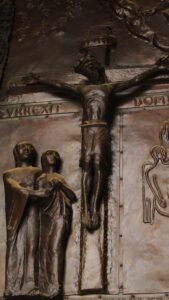
Pastor Rachel Livingston
I. Beginnings
How do I love thee? Let me count the ways…let us love one another because love is from God and God is love…Give thanks to the Lord, for he is good, and his steadfast love endures forever. As we look at our scriptures this morning and our poem by Elizabeth Barrett Browning it is no secret that our theme this morning, on our journey of engaging poetry from well-known poets, is love. We see that our psalm, could be its own poetry prose, a collective of words and themes, but overall reminding its reader that God’s steadfast love endures forever. God’s love for us, humanity, those made in the image of God endures forever. What a great theme to engage with after a week of division, waiting, and anticipation.
The book of 1 John, an epistle of sorts, a book that is believed to have the same author as the 4th gospel, John, was written to a divided community, a community that was torn and at odds with each other, a community who was distrustful of one another, a community that believed they had irreconcilable differences, a community that had split over fundamental belief systems. It is not completely clear what caused the division within the community, but what is clear is that there was a rift within the community and the writer of this letter was writing to bring encouragement to this community in the midst of storm, in the midst of pain, in the midst of chaos, and in the midst of catastrophic division.
Does this sound familiar? Does it feel eerily similar to something you have heard? Something you have experienced or maybe even recently witnessed???
Harlem (What Happens To A Dream Deferred?)
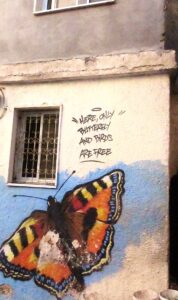
Pastor Rachel B. Livingston
I. Beginnings
We come again to our sermon series on poetry from well-known poets, where we have engaged topics such as God being our Good Shepherd, creating Beloved Community, embracing the true sense of Christ, and traveling the road that is bound with Christ and not the status quo. We have been able to see that the word of the Lord can come alive in unsuspecting places in life, therefore we must keep our eyes open for where God is moving because God can move anywhere and everywhere. And now we are looking at the poem “Harlem” by Langston Hughes as we look at the idea of God calling for justice in the midst of a world that perpetuates oppression. An idea that can be applied to the time of our scripture, the time of our poem this week, and even now in our present reality. What happens to a dream deferred? The highlighted question of the hour, within the eloquent words of our poet, Langston Hughes, a premier writer from the Harlem Renaissance. An anticipated question that in some ways does not necessarily achieve a specific answer or resolution within the confines of this poem, but yet you can feel the emotion that is present in the question brought about by the author as he seems to deeply understand what happens when a dream is deferred, put on hold, delayed so long that it feels like it’s been denied, or actually has been denied so long the hope of it occurring is actually suffocated. What happens to a dream deferred? And what then happens to the hope within the heart? And what then happens to the spirit of the human being as the dream is stifled?
The Road Not Taken
Pastor Rachel B. Livingston

I. Beginning
We gather together this morning, continuing in our series that will lead us into Advent, the season in the Christian church that marks the beginning of the Christian year – the point where we will be actively waiting for our coming savior. But in this moment, we are looking at the ways that God is revealed in unlikely places such as within the words and stanzas of poetry from well-known authors. We have seen that God can move within secular writings in ways that when read alongside scripture, can make what God is saying within the lines of scripture come alive. Isn’t it awesome, that we serve a God who is so sovereign, that God can use anything to reveal Godself within the world, including artistic expression, metaphors, similes, and pensive thinking.
You Came, Too
Pastor Rachel B. Livingston
I. Beginning
We approach our message this morning as we continue on this journey within our series that connects our scripture to poems from famous poets of the past and present. On our journey, we have found that we can find God in many different places and spaces of life, that God can use anything that we encounter to experience and further understand our God, including the words, metaphors, similes, imagery, and stanzas of poetry. We just have to open up our eyes to see God’s movement. Our poem this morning is our sermon title, “You came, Too,” which was written by Nikki Giovanni, which I have to admit is one of my favorite poets. Both our scripture and our poem lift up a genuine sense of community and love that should be present within the Body of Christ, the church – not just the walls of a building but the institution of the people called by God, not bound by the walls of an edifice, but those bonded together that no matter where they gather are bonded in the name of Jesus Christ, bonded in Christ that we might, in connection with Christ, create and proclaim God’s love, peace, and justice.
A Child’s Hymn
Pastor Rachel B. Livingston

I. Beginnings
The title of our sermon this morning comes from the Charles Dickens poem entitled “A Child’s Hymn” based on the similarities and common themes that are found within both the poem and our scripture this morning. Our scripture the 23rd Psalm, a Psalm attributed to David, and yet probably one of the most well-known Psalms of the biblical text is an iconic piece within the Christian’s personal scriptural lexicon. Many of us hold it as our favorite scripture, and some if they know no other scripture at all, they know this specific text. It is likely that as we read the scripture this morning, most of you did not even have to reference your Bibles as we read it. Based on what version you have memorized on your hearts, some may even feel that I read the words wrong. This passage is so familiar because many of us were taught it as a child, back when we were bright-eyed and bushy tailed. It was taught to us, that it might lay the foundation for our faith, that we might know who we are and whose we are – we are people of God, who choose to follow God because God is a Good shepherd, a comforter who is ever present, even in our darkest moment of need. God extended us divine grace and we chose to accept it, with a pure sense of faith. Our parents and church family wanted us to learn this because they were only trying to instill in us that The Lord is our shepherd, and we shall not want because God is the one that leads us in the paths of righteousness, God is the one that comforts us with God’s rod and staff, God is the one that anoints our head with oil because we can always trust God to be present with us. A concept that is probably easier to understand with an eager child-like faith. And whether we encountered this scripture as a child or with the newness of our own faith as an adult, there is something about the pureness of our faith in that moment, it is fresh, it is pure, it doesn’t question that God will be there because as children or even new people in the faith, we know it to be true because that is all we know. God is going to be there because God had said it, and scripture has affirmed it to be true. It is a kind of untainted mentality in which we follow God blindly because we are so assured that we are affirmed children of God. Our poem on the other hand, this morning, is a poem that lifts up the same pure, genuine child-like faith, assured in God’s presence and untainted by the world. It requests God’s presence to watch over and protect, to cover in the midst of peril, and to give rest and comfort. It holds to the understanding that God is present, a comforter and sustainer, even in the midst of the chaos that life tries to throw at us.

